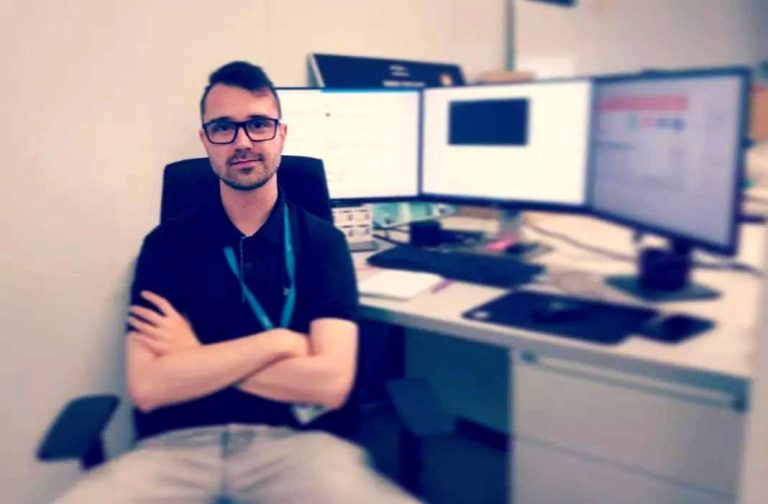Alex Muñoz Carmona: From LPI certificate to system administration

Alex Muñoz Carmona did his compulsory studies at INS Guinovarda in Piera, Catalonia. After finishing school, he took the LPI exam that qualified him to receive the Linux Essentials certificate, which he gives credit for helping him win his first professional position as system administrator at the SEAT automobile company. The following interview explains the tools Alex uses in his work and the value of LPI certification.
Please describe your education before you got your job at SEAT.cer
The computer training cycle at INS Guinovarda was a great experience, thanks to the teachers we had. At the beginning, the center did not have the material we needed, but with a lot of effort on the part of the teachers, they managed to give us the necessary equipment. We worked only with Linux, to be able to enter the job market well prepared as sysadmins. It was the best experience of my life.
What do you do as system administrator at SEAT? What does SEAT use GNU/Linux for? What are the major tools you work with?
At SEAT, I manage their Active Directory for all their users, groups, and group policy objects (GPOs). But I use Linux to run calculations to automate the processing of incidents at logging level 3. For process automation, I create automation scripts using a number of Linux commands in the Windows PowerShell console to facilitate the work of technicians, such as copying massive files, deploying applications to all the computers in the park (data center), and monitoring the attributes of the entire AD to perform backups. The tools I use the most are PowerShell, to create customer-specific applications, and the open source LDAP, which interoperates with Active Directory.
Why did you decide to get the Linux Essentials certificate? What did you feel you were lacking in your education or qualifications before you got the certificate?
There were two reasons I decided to get the Linux Essentials certificate. First, Linux was the operating system that my professor Xavi used in studies, so I came out of the program quite prepared to obtain the certificate. Second, Linux makes development and deployment easy for the projects I need to do.
What role did computers play for you when you were growing up? Did you have friends or people at school who used Linux or other advanced computer tools?
My first contact with a computer came when I was five years old, and I soon realized that it was the future and that I could turn my hobby into my job. I had a friend whose father was a computer scientist, and he helped us with any inconveniences we encountered. Moreover, he used Linux a lot to set up servers.
What did you think of your formal education in school? Did it help prepare you for what you are doing at work now?
I learned a lot thanks to my professor, Xavi, who was very oriented to the world of work, both technically and professionally. My training helped me learn how to hold a meeting, how to present a project to managers, and above all how to act decisively in the face of any problem.
How did you prepare for Linux Essentials? Do you have advice for other people who want to get an LPI certification?
My preparation was simply to use Linux environments daily for two years. To pass the certificate exam, you must look for a lot of information and put it into practice. Use Linux as your main operating system to learn how to deal with all the facets that it requires.
Was the Linux Essentials test like other tests you have taken? How was it different from tests in school?
The exam was very similar to the ones carried out in my school, because the professor guided us a lot toward the world of Linux.
What are your plans for more education and professional work?
AM: My plans are to get LPIC-1 certification, learning along the way to use all that knowledge with other operating systems that integrate Linux-related tools.
